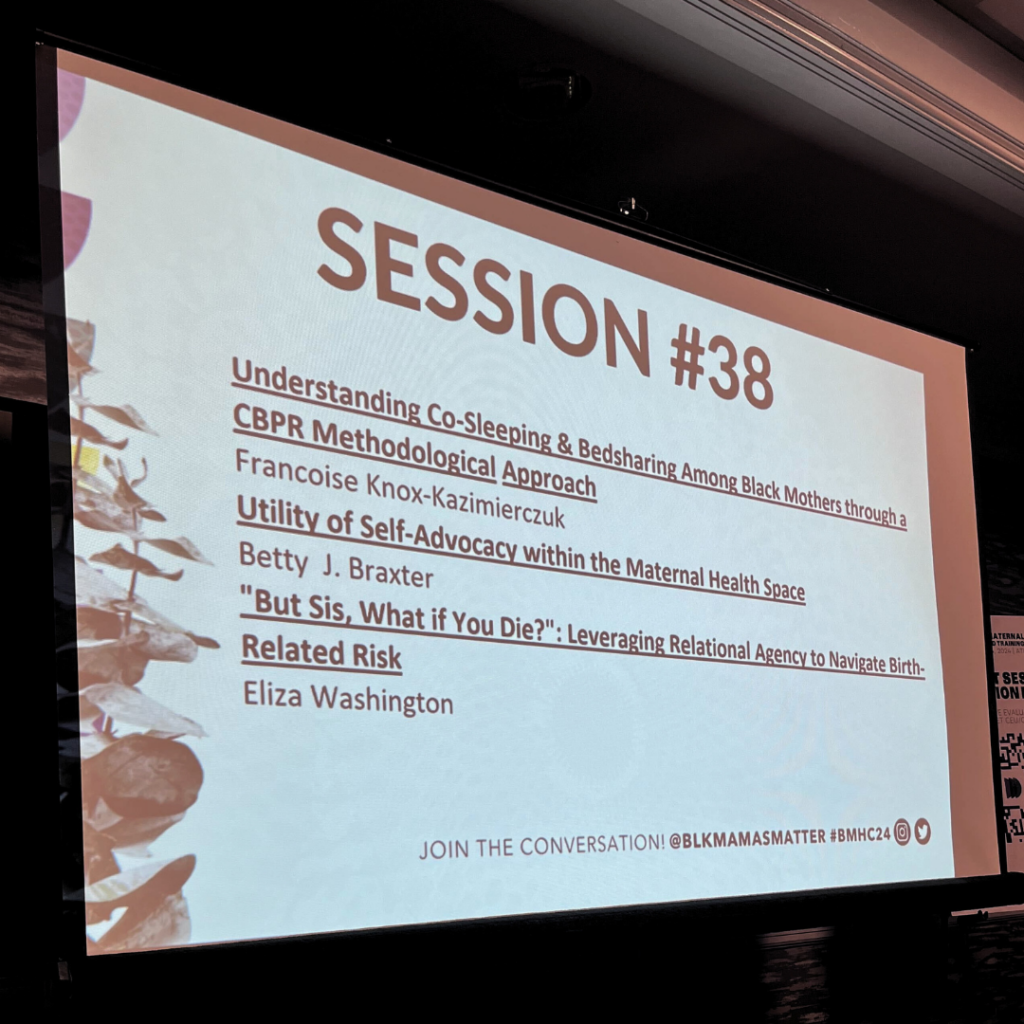Reproductive Justice and Joy
Reflections on the 2024 Black Maternal Health Conference
- Op-ed

Eliza Washington, MRSc
Research Coordinator, Metriarch
When we talk about the current disparities and routine mistreatment of Black birthing people, it becomes harder to imagine and give space to experiences which instead radiate joy and fulfillment. But stories can also be a source of hope.
Stories of joy remind us what is possible for all birthing people and create a goal to strive for on a systemic level.
As we’ve talked about again and again and again, Black birthing people in the US experience higher rates of preterm birth, medical mistreatment/neglect, and maternal mortality and morbidity than their peers. These disparities color the Black perinatal experience, creating fear, pain, and unnecessary burden. They also violate people’s right to Reproductive Justice.
Reproductive Justice is the right to bodily autonomy, to have children, to not have children, and to bear/raise children we do have in safe environments. Black people in the US are impacted by a legacy of historical violations to their reproductive rights. But resistance and restoration are part of our legacy as well. The Black Maternal Health Conference (BMHC) is a space that fosters restorative scholarship, policy, and advocacy work – a space dedicated to securing Reproductive Justice for the Black birthing community.
I had the pleasure of attending the 2024 BMHC in Atlanta last month. It was thrilling to be surrounded by people with so much passion for improving reproductive care.

While at the conference I presented twice, focusing on self-advocacy and doula work in both sessions.
The first was based on my master’s thesis. In it, I explored how Black birthing people navigate perinatal systems which are commonly misattuned to their needs and at worse, hostile toward them. I learned that the fear of discrimination and negative birth outcomes shaped every decision participants made during pregnancy. My interviews with Black moms and doulas revealed the importance of trust-based relationships in overmedicalized birth spaces. Participants expressed a desire for trusting and supportive relationships throughout their perinatal journey – preferably with someone who could understand their fears and cultural background.
The second presentation was given alongside Ashlee Wilson from Oklahoma Birth Equity Initiative (OKBEI). We discussed the capacity of doula work to address maternal vulnerability here in Oklahoma. Through their non-clinical support, doulas reduce c-section rates, preterm birth, and anxiety/stress. Although they can’t do the work alone, they’re a necessary piece of bridging the gap in quality of care for Black birthing people. Which is why it’s so fantastic that Oklahoma became the 11th state to expand Medicaid to include reimbursement for doula services last year.
As an attendee, one of the presentations that stands out most was from Seals Allers et al. Using interviews from Seals Allers’ podcast as qualitative data, they uncovered themes relating to Black birthing joy. When we talk about the current disparities and routine mistreatment of Black birthing people, it becomes harder to imagine and give space to experiences which instead radiate joy and fulfillment. But stories can also be a source of hope.
Like other content at the BMHC, stories of joy remind us what is possible for all birthing people and creates a goal to strive for on a systemic level.


